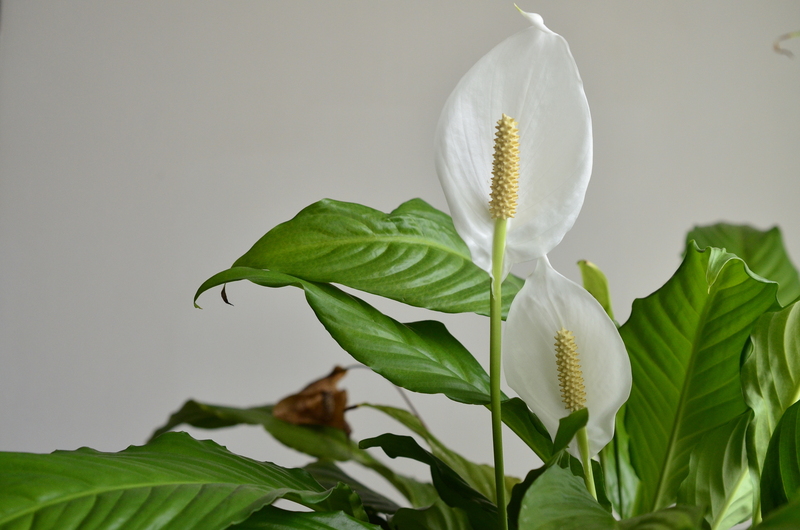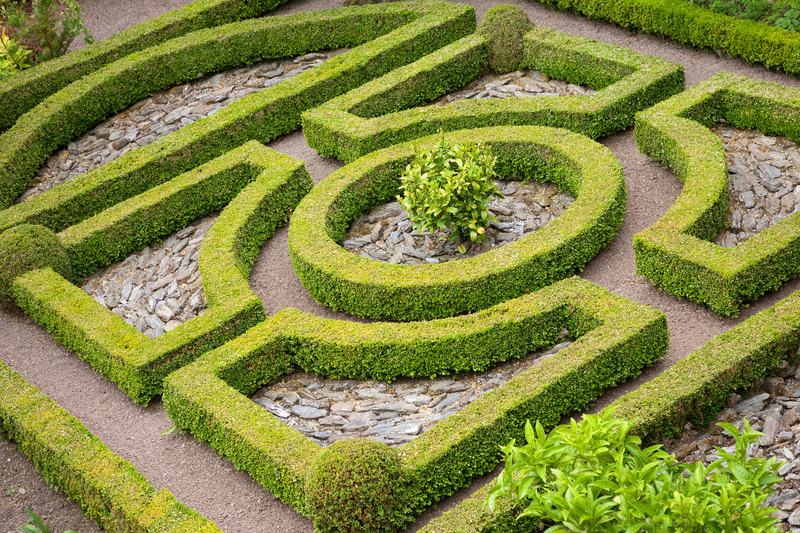Learn 9 Vital Tips for Successful Beginner Gardening
Posted on 13/06/2025
Learn 9 Vital Tips for Successful Beginner Gardening
If you've always dreamed of cultivating your own lush, vibrant garden but don't know where to start, you're in the right place. Gardening for beginners can seem intimidating, but with the right guidance, anyone can transform a patch of ground--or even a few pots on a windowsill--into a thriving oasis. In this article, we'll unveil 9 vital gardening tips tailored especially for those just starting out. Once you master these beginner gardening techniques, you'll be well on your way to a rewarding and fruitful gardening journey.
1. Choose the Right Garden Location
One of the most critical steps in gardening for beginners is selecting an appropriate spot for your garden. The location you choose lays the foundation for all your gardening successes--or failures.
- Sunlight: Most vegetables, herbs, and flowers need at least 6 to 8 hours of direct sunlight daily. Observe your yard or balcony throughout the day and identify sunny spots.
- Accessibility: Pick a spot that's easy to access for watering, harvesting, and maintenance. The more convenient it is, the more likely you'll care for it regularly.
- Protection: Shield your garden from harsh winds with fences, walls, or natural barriers.
- Surface: Flat ground is best to prevent water runoff, but if you're dealing with slopes, consider terracing.
*Gardening beginners often overlook site selection, but this simple step can greatly improve your gardening results!*

2. Understand Your Soil
Your soil is the lifeblood of your garden. Before planting, get to know your garden soil. This will help you choose the right plants and amendments to ensure healthy growth.
- Soil Type: Is your soil sandy, clay, loamy, or silty? Loamy soils are best for gardening, but amendments can improve structure, water retention, and drainage.
- Test the pH: Most garden plants prefer a pH of 6.0 to 7.0. Home soil test kits are affordable and simple to use.
- Nutrient Levels: Consider a basic soil test to assess for nitrogen, phosphorus, and potassium--essential nutrients for plant health.
For successful beginner gardening, don't skip this step. Good soil means healthy roots and happy plants.
3. Start Small and Expand Gradually
It's tempting to go big right away, but beginning gardeners often feel overwhelmed when they take on too much at once. Instead, follow these simple strategies:
- Begin with a small bed or a few containers. This way, maintenance and learning curves won't be overwhelming.
- Pick low-maintenance plants to get started--think marigolds, lettuce, radishes, or zinnias.
- As your confidence grows, slowly add more varieties or try out slightly challenging plants.
Remember: A small, thriving garden is much more rewarding than a sprawling plot overrun by weeds and pests.
4. Choose the Right Plants
Every plant has its own requirements for sunlight, soil, space, and water. Make sure you select plants that suit your local climate (your plant hardiness zone). Check the label, and match your space and abilities to their needs.
- Consult local garden nurseries for advice or look for plants marked "easy to grow" or "good for beginners."
- Mix annuals and perennials. Annuals add instant color, while perennials come back year after year.
- Vegetables for beginner gardeners: Tomatoes, beans, lettuce, and carrots are often successful choices for new green thumbs.
Trying new and interesting varieties each year keeps gardening exciting, educational, and enjoyable.
5. Learn Efficient Watering Techniques
Learning how and when to water is a keystone of effective gardening for beginners. Too much or too little water spells trouble.
- Water early in the morning to allow leaves to dry quickly, reducing risk of fungal diseases.
- Water deeply but less frequently to promote deep root growth which helps plants withstand drought.
- Test by touch: Stick your finger into the soil. If it feels dry 2 inches down, it's time to water.
- Mulch to slow water evaporation and maintain even soil moisture.
TIP: Invest in a soaker hose or drip irrigation system for even, efficient watering. It's a game-changer for beginner gardeners.
6. Master the Art of Mulching
Mulching is like laying a protective blanket over your garden beds. This simple gardening step helps conserve moisture, block weeds, and moderate soil temperatures.
- Organic mulches: Straw, shredded leaves, grass clippings, or wood chips decompose and add nutrients to your soil.
- Inorganic mulches: Gravel, black plastic, or landscape fabric are best in walkways or for permanent plantings.
- Apply mulch 2-3 inches deep around plants, but avoid piling it directly against stems.
Mulch is an unsung hero of successful gardening: it saves water, time, and effort--especially for beginners!
7. Feed Your Plants Properly
Plants, like people, need balanced nutrition to thrive. Basic fertilizing supports robust growth and colorful blooms or abundant harvests. Here's how beginner gardeners can get it right:
- Choose an all-purpose organic fertilizer when starting out, or use compost to feed your garden naturally.
- Follow package instructions to avoid over-feeding, which can damage plants and the environment.
- Supplement during high growth periods (e.g., when tomatoes start to flower or when leafy greens are putting on height).
Feeding your plants doesn't have to be complicated--just consistent. Over time, you'll learn what each variety needs, but for beginner gardeners, a little goes a long way.
8. Practice Consistent Maintenance
Tending a garden is an ongoing process. Regular upkeep ensures your efforts pay off. Here are some essential beginner gardening maintenance tips:
- Weed regularly. Weeds compete for water, nutrients, and light. Pull them out as soon as you spot them.
- Deadhead spent flowers to encourage new blooms.
- Check for pests and diseases every few days, and take action at first signs.
- Thin seedlings for proper plant spacing and improved yields.
Make a simple weekly or bi-weekly chore list to stay on top of tasks. This way, gardening never becomes overwhelming.
9. Keep Learning and Enjoy the Process
Every successful gardener started as a beginner, and much of gardening is learned through experience. Beginner gardening is all about asking questions, trying new things, and learning from your mistakes.
Ways to Continue Your Gardening Education:
- Read gardening books and reputable gardening blogs.
- Join local gardening groups or classes in your area.
- Keep a garden journal to track what works and what doesn't season after season.
- Experiment--try growing something new each year!
Most importantly, enjoy the process. Every weed pulled, bud that blooms, or tomato harvested is a small victory worth celebrating!

Frequently Asked Questions (FAQs) About Beginner Gardening
What are the easiest plants for first-time gardeners?
Lettuce, radishes, sunflowers, zinnias, marigolds, green beans, and nasturtiums are all excellent choices for beginners.
How much time should a new gardener spend each week?
A beginner-friendly garden requires 15-30 minutes a day or a couple of hours weekly. As your skills grow, you may enjoy spending even more time outdoors!
What is the best season to start a new garden?
Spring is the traditional time for starting a garden, but many crops and flowers can be started in late summer or fall, especially in mild climates.
Can I garden successfully in containers?
Absolutely! Container gardening is ideal for those with limited space. Most herbs, salad greens, and even tomatoes grow well in pots with good soil and drainage.
Conclusion: Start Your Successful Beginner Gardening Journey Today
By following these 9 vital beginner gardening tips, you'll set yourself up for a fulfilling experience--no matter your space, skill, or budget. As you gain confidence and knowledge, gardening will become second nature and a lifelong source of pride.
Ready, set, grow! Find your sunny spot, start small, nurture your plants, and don't be afraid of a little dirt. Successful gardens--and successful gardeners--grow one step at a time.
Did you enjoy these beginner gardening tips? Share your own gardening stories or questions below, and happy planting!
Latest Posts
Cultivate Freshness: Essential Steps to Build a Herb Garden
Garden to Glory: Initial Steps for Revamping
Turning Your Outdoor Space into a Child-Friendly Retreat



